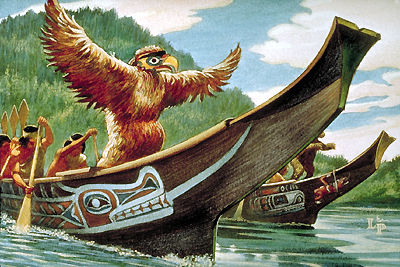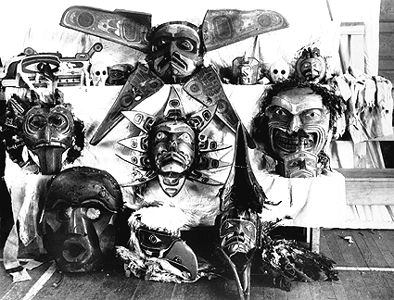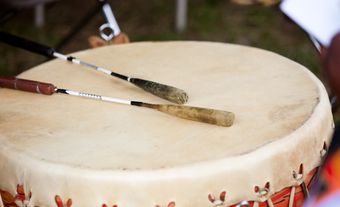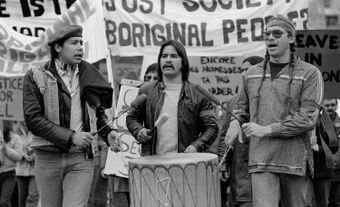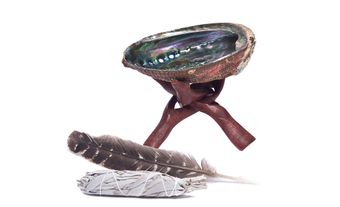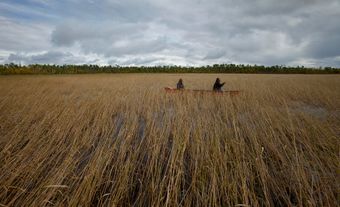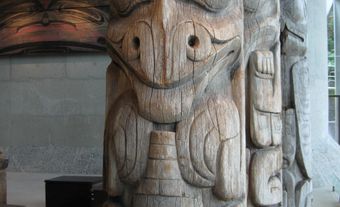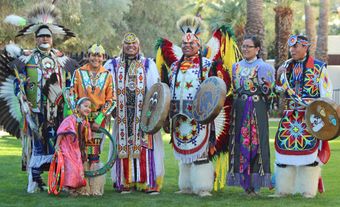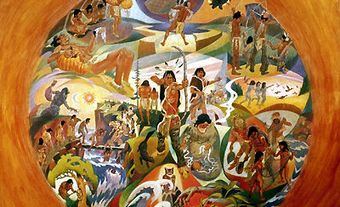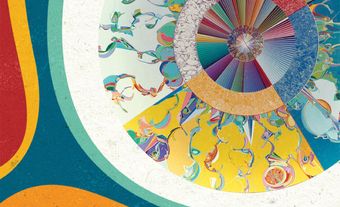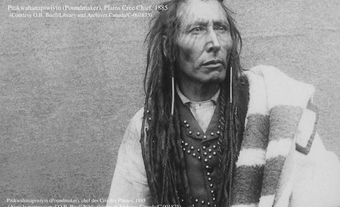The Potlatch (from the Chinook word Patshatl) is a ceremony integral to the governing structure, culture and spiritual traditions of various First Nations living on the Northwest Coast (including the Kwakwaka’wakw, Nuu-chah-nulth and Coast Salish) and the Dene living in parts of the interior western subarctic. While the practice and formality of the ceremony differed among First Nations, it was commonly held on the occasion of important social events, such as marriages, births and funerals. A great Potlatch might last for several days and would involve feasting, spirit dances, singing and theatrical demonstrations.
Purpose
Historically, the Potlatch functioned to redistribute wealth in what some refer to as a gift-giving ceremony. Valuable goods, such as firearms, blankets, clothing, carved cedar boxes, canoes, food and prestige items, such as slaves and coppers, were accumulated by high-ranking individuals over time, sometimes years. These goods were later bestowed on invited guests as gifts by the host or even destroyed with great ceremony as a show of superior generosity, status and prestige over rivals.
In addition to its economic redistributive and kinship functions, the Potlatch maintained community solidarity and hierarchical relations within and between communities and nations. A highly regulated ceremony, the Potlatch conferred status and rank upon individuals, kin groups and Clans, and established claims to names, powers and rights to hunting and fishing territories.
History
As part of a policy of assimilation, the federal government banned the Potlatch from 1884 to 1951 in an amendment to the Indian Act (see Potlatch Ban). The government and its supporters saw the ceremony as anti-Christian, reckless and wasteful of personal property. They failed to understand the Potlatch’s importance as well as its communal economic exchange value.
The last major Potlatch before the removal of the ban, that of Kwakwaka’wakw Chief Dan Cranmer from Alert Bay, British Columbia, was held in 1921 (see ‘Mimkwamlis Potlatch). Authorities confiscated Potlatch items and laid charges against many people who participated in the Potlatch.
The Potlatch ban disrupted social relations and damaged Indigenous identities. In 1951, the ban was removed, in part because of challenges to enforcing it and changes in governmental attitudes. However, the ban did not eradicate the Potlatch. A year after the Potlatch ban was removed, Kwakwaka’wakw Chief Mungo Martin held a major Potlatch. This was the first legal Potlatch to be held since the initiation of the ban in 1885. Since then, the Potlatch continues to be practiced in some Indigenous communities today.

 Share on Facebook
Share on Facebook Share on X
Share on X Share by Email
Share by Email Share on Google Classroom
Share on Google Classroom
